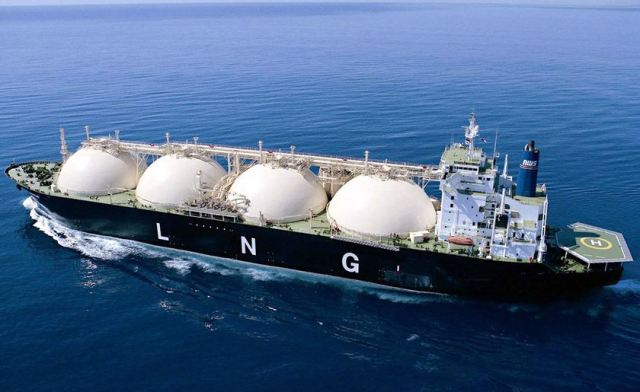Post Brexit, the Goal is an Ambitious Anglo-Hungarian Relationship

Marianna Sárközy
On February 1, Britain entered into a new relationship with the European Union, albeit little changes on the ground for the transition period that lasts until the end of this year. But the U.K. Ambassador to Hungary sees real potential for a deepening of bilateral relations, he tells the Budapest Business Journal in an exclusive interview.
British Ambassador Iain Lindsay speaking on Brexit Day at the BBJ Expat CEO of the Year gala on January 31. Photo by Marianna Sárközy.
It may no longer be a direct part of the world’s largest trading block, but the United Kingdom does not intend to sit meekly on the side lines. “We are ambitious,” Lindsay says, and he believes the same can be said of the Hungarians.
“I am a great believer in this region, I always have been. I think we are potentially at a point of a happy meeting of mutual ambition on both sides. Hungary’s clearly still got loads of potential, Europe is still unbalanced,” the ambassador explains
“That doesn’t just apply to Hungary, it applies to the Central European region generally, there really is a fantastic opportunity. This is the moment. It is in both sides’ interest to seize the moment [….] because time waits for no man, and the reality is many of our partners around the world are cueing up, in every manner of speaking, to say we want to do more with the U.K.”
The ambassador says the Visegrad Four grouping, which sees Hungary coordinating alongside the Czech Republic, Poland and Slovakia, and which collectively is a bigger trade partner with Germany than France, will grow in significance.
“We have got coming up over the next two weeks the first V4-U.K. meetings for two years. I think it is really great that so quickly after we have left the European Union we have these V4 meetings between Europe ministers and between defense ministers, recognizing that the V4 will be important future partners.”
Still Here
One of those meetings will be in Prague (the Czech Republic currently holds the rotating presidency of the V4). Somewhat ironically, the other will be in Brussels, in the margins of the NATO defense ministers’ meeting.
“Which, of course, proves the point that we have left the European Union, but we have not tuned our backs on Europe: we are still the second largest economy in Europe, the fifth largest economy in the world, and we are still the largest European contributor to the defense and security of this continent,” Lindsay points out.
Issues such as defense, security and law enforcement will clearly be important aspects to any future EU-U.K. relationship. The statement British Prime Minister Boris Johnson had laid before the U.K. Parliament in early February talks of a “pragmatic agreement to provide a framework for law enforcement and judicial cooperation in criminal matters”, albeit one in which the Court of Justice of the European Union does not hold jurisdiction over the British legal system.
One suspects, however, that these are easy pickings. It is so evidently in the interests of both parties to work together on security and policing, that a broad agreement should be possible relatively quickly. Guarantees over citizens’ rights would be a good example, the framework for which was agreed back in 2017. Where things will get more complicated will be over trade.
“Primarily we are looking for a friendly cooperation with the EU, largely centered around free trade. [….] Australia does not have a free trade agreement with the European Union, it has something much looser; neither, of course, does the United States. We would be prepared to look at that, but our preference, our goal, would be to go for something as good as the Canadian [free trade] agreement.”
Clear Intent
One thing Johnson has brought to the process is a clarity of intention. Where his predecessor, Theresa May, seemed hamstrung by her slender majority and a desire to balance the views of the Brexiteers and Remainers at the polar extremes of her party, Johnson has a thumping majority and an agreed pro-Brexit agenda. He has made it clear that the transition period will not be extended beyond this year, and while he would rather have an FTA, it is not at any cost; he is prepared to put up with some friction in trade if it means remaining economically and politically independent of the EU.
For now, Lindsay says, Britain remains hopeful a way can be found to a Canada style FTA. “Twenty-six of the 27 member states of the European Union have got trade surpluses ranging from small to huge with the U.K., so in terms of the interest of ensuring that trade continues to flow, that people can continue to sell their goods into the U.K., frankly, it makes a lot of sense for trade to continue uninterrupted.” The goal will be “zero tariffs, zero quotas” he says
Whatever deal Britain can agree, or even if no deal can be struck within the year and the default World Trade Organization rules apply, the country has to make the situation work for itself.
“As Dominic Raab the foreign secretary said in his speech [….] failure, or striving for failure, is not an option here; we have to make a success of this. Having left the European Union, that is the only option. The government’s vision of a global Britain is a very serious one. There’s a lot of energy out there. I guess the secret of it is harnessing the energy in an effective way. Enthusiasm is great, but it has to be directed towards real world outcomes,” Lindsay points out.
Citizens’ Rights
The last piece of this diplomatic jigsaw puzzle, and perhaps both the most important and easiest to solve, are the people. Having exited under the Withdrawal Agreement, the basic existing rights of U.K. citizens in the EU and EU citizens in Great Britain are guaranteed. Some question marks do remain, and registration is required on both sides of the Channel, though the process is being made as smooth as possible. In Hungary, for example, the Wednesday of each week is given over to U.K. citizens for registration.
There are an estimated 3.5 million EU citizens in the United Kingdom, of which 2.8 million have already registered, although the deadline for doing so is not until the end of June next year, provided you arrived in Britain no later than December 31, 2020. Of that 2.8 million, only six individuals have thus far been rejected, Lindsay says.
“For Hungarians in the U.K. we have no accurate data. We suspect the figure is 100,000 plus, 150,000 plus, but thus far 85,000 Hungarians have registered.”
Estimates for the number of Brits in Hungary are much smaller, and range up to 10,000, with very close to 5,000 registered thus far.
“A lot of the concerns we heard at town hall meetings were around what happens if there was [a] no deal [exit]. We get the strong sense that Brits here are generally content,” Lindsay says. “The town hall meetings we had helped to reassure a lot of people. The vast majority of the feedback we got from those was very positive.”
Having built up a stronger bond between the embassy and the British community, Lindsay says the intention is to continue that interaction. “We will have further town hall meetings, the next one in the next few months,” he promises.
SUPPORT THE BUDAPEST BUSINESS JOURNAL
Producing journalism that is worthy of the name is a costly business. For 27 years, the publishers, editors and reporters of the Budapest Business Journal have striven to bring you business news that works, information that you can trust, that is factual, accurate and presented without fear or favor.
Newspaper organizations across the globe have struggled to find a business model that allows them to continue to excel, without compromising their ability to perform. Most recently, some have experimented with the idea of involving their most important stakeholders, their readers.
We would like to offer that same opportunity to our readers. We would like to invite you to help us deliver the quality business journalism you require. Hit our Support the BBJ button and you can choose the how much and how often you send us your contributions.









